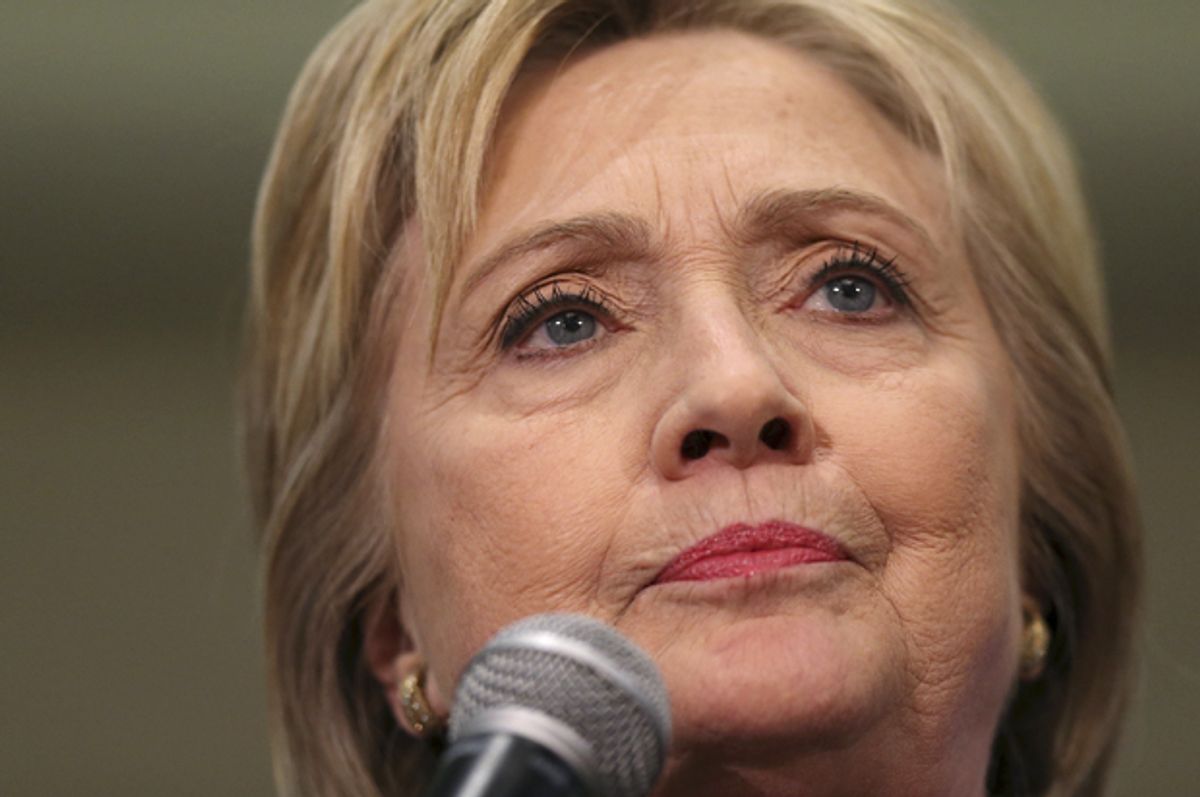 The early March assassination of Honduran social movement leader Berta Cáceres provoked international outcry, and calls for 2016 presidential hopeful Hillary Clinton to discuss her support of the country’s 2009 coup, which ousted democratically elected president Manuel Zelaya and escalated the violent repression of human rights defenders.
The early March assassination of Honduran social movement leader Berta Cáceres provoked international outcry, and calls for 2016 presidential hopeful Hillary Clinton to discuss her support of the country’s 2009 coup, which ousted democratically elected president Manuel Zelaya and escalated the violent repression of human rights defenders.
Now, just days after the Clinton campaign dismissed these demands for accountability as “simply nonsense,” Nelson Garcia, a member of the same indigenous justice organization Cáceres was part of, has been shot to death. An outspoken activist with the Civic Council of Popular and Indigenous organizations of Honduras (COPINH), Garcia, 30, was killed by “unknown assailants” this week following the violent eviction of families in the community of Rio Chiquito in Rio Lindo, according to a COPINH statement emailed to AlterNet.
The organization reports that “approximately 100 police, 20 members of the militarized police, 10 soldiers, and several members of the DGIC (investigative police)” participated in the eviction by invading “the territory that had been recuperated by 150 families.” Such testimony points to direct government culpability in the eviction and raises questions about who was behind the assassination.
“Comrade Nelson García was an active militant of COPINH, defending the right to habitation,” said the organization. “We remember him for his active participation in the process of recuperating the land and founding the community of Río Chiquito. We lament this new death, thirteen days after the vile assassination of our General Coordinator Berta Cáceres.”
Cindy Wiesner, national coordinator for the Grassroots Global Justice Alliance, told AlterNet that the U.S. should step up and come clean. “Both former Secretary of State Hillary Clinton and President Barack Obama must take responsibility for the financial and political support to the 2009 military coup and to the current Honduran government that is fueling abuses by military personnel and the use of death squads against organizers, journalists, and students—especially those at the forefront of defending land, territory and natural resources,” said Wiesner.
The U.S. role in the coup is verified in Clinton’s memoir and released emails. WikiLeaks cables from 2009 show that the state department at the time had no illusions about what was happening. As Greg Grandin recently noted in the Nation, Zelaya’s ouster paved the way for “an all-out assault on these decent people—torture, murder, militarization of the countryside, repressive laws, such as the absolute ban on the morning-after pill, the rise of paramilitary security forces, and the wholesale deliverance of the country’s land and resources to transnational pillagers.”
Cáceres was a visible opponent of the coup and organizer against the Agua Zarca Hydroelectricity Generating Project in the Gualcarque River basin, whose construction is fraught with human rights abuses, including the expropriation of indigenous Lenca territory. In 2013, a Honduran soldier shot and killed Lenca organizer Tomás Garcia during a protest against the dam, which is promoted by the company Desarollos Energéticos S.A. (DESA).
In response to grassroots pressure, two international banks, FMO andFinnFund, pulled out of the dam project today, citing the murder of Cáceres. However, despite a direct action earlier this week calling for USAID to cut ties with the dam project, the Obama administration has made no comment.
Meanwhile, there are signs that violent repression is escalating. Jose Angel Flores, president of the Unified Peasant Movement of the Aguan, was reportedly arrested this week along with six other people from his organization and is currently detained. COPINH reports that “comrades of the community went to the Río Gualcarque and were assaulted with shotgun blasts by the security guards of the hydroelectric project Agua Zarca, fortunately without injuring any members of the community.”
Bertha Cáceres recently said of her mother’s murder, "This is not the first assassination, but one of a series of assassinations of human rights defenders…I don’t want another human rights defender to be assassinated.”
Despite these dire human rights conditions, Dan Beeton, international communications director for the Center for Economic and Policy Research, told AlterNet that the “Obama administration is loathe to put any pressure on the Honduran government. I would say, worse than that, they are pretending there is not a problem.”
“It’s hard to understate the extent to which Clinton’s actions on Honduras were a huge foreign policy failure,” Beeton continued. “Clinton needs to answer why she did this and why they thought this was a good idea.”
“All of these aggressions are part of a plan for the extermination of our organization, and we call for national and international solidarity to fight back,” said COPINH. “We demand that the Honduran state answer for the deaths of our comrades and that there be no more impunity.”



Shares